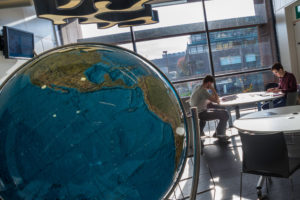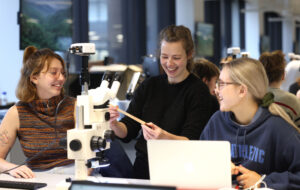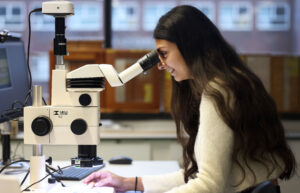How you'll learn
Lectures, lab or computer-based practicals, workshops, tutorials, and seminars will take place on campus, so will give you plenty of opportunity to engage with the theory and reall-world implications of research into human geography, as well as your colleagues and lecturers.
You’ll push yourself and learn independently, through reading and learning qualitative research and methodologies, and access real world data via the UK Data Archive.
You can dig deeper online and take part in discussion forums with other students and researchers in the field.
How you're assessed
Through a series of oral presentations, essays, and reports you’ll be able to demonstrate your understanding of existing research in human geography, along with how you interpret existing data.
You will also complete some assessments that mimic real world work you may produce after your master’s – including a conversation journalism piece, essays in the form of reports or academic papers, and policy briefs.
There are also exams in some modules, which may have longform essay questions or “short answer” questions which require you to show your understanding of, and ability to apply, descriptive and inferential statistics to a real-world dataset.
Liverpool Hallmarks
We have a distinctive approach to education, the Liverpool Curriculum Framework, which focuses on research-connected teaching, active learning, and authentic assessment to ensure our students graduate as digitally fluent and confident global citizens.
The Liverpool Curriculum framework sets out our distinctive approach to education. Our teaching staff support our students to develop academic knowledge, skills, and understanding alongside our graduate attributes:
- Digital fluency
- Confidence
- Global citizenship
Our curriculum is characterised by the three Liverpool Hallmarks:
- Research-connected teaching
- Active learning
- Authentic assessment
All this is underpinned by our core value of inclusivity and commitment to providing a curriculum that is accessible to all students.









